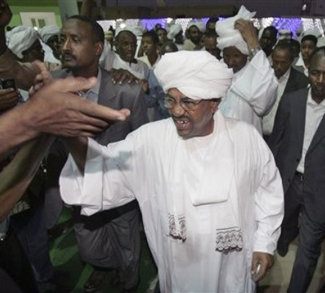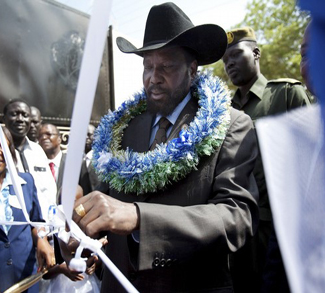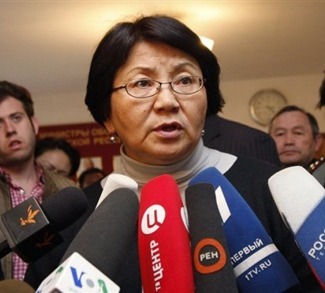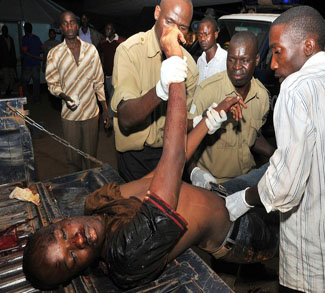FORECAST
In the wake of last week’s highly symbolic though hollowed-out election in Sudan, the question on everyone’s mind is no longer whether or not the south will secede in 2011, but how bloody their secession will be.
Last week’s election, mandated by the Comprehensive Peace Agreement (CPA) signed by northern and southern Sudan in 2005, was reflective of just how fragile the Sudan CPA process has become. All of the major election observers, from the Carter Center to the European Union, half-heartedly criticized the fairness of the electoral process without commenting on the proverbial elephant in the room.
This of course refers to the fact that ICC-indicted President al-Bashir was only running against himself; making it a hard race to lose. Almost the entire landscape of political opposition opted to boycott the election process amid pre-emptive accusations of electoral fraud. Without the participation of the Umma Party or the Sudan People Liberation Movement’s (SPLM) in the north, al-Bashir’s victory lacks the legitimacy that could hold Sudan together as the next important CPA date approaches: a referendum on southern secession in January 2011.
That the south will vote to for independence when given the chance is no secret to the government in Khartoum. Furthermore, long-simmering animosities between the north and south preclude the possibility of pushing back the fast-approaching CPA referendum date- even if such a delay was needed to thresh out issues like voter registration or the demarcation of the oil-rich border.
Claims on the oil-rich border region are a sure flashpoint for conflict, but there is still hope that the symbiotic oil relationship between north and south could end up inducing an agreement that avoids renewed civil war. About 75 percent of Sudan’s proven oil reserves are located in the landlocked south, but these reservoirs need to be transported by pipeline to the north for shipping via the Red Sea. Given this basic geographic dependency, some senior ministers in the southern government have suggested that an independent south would be willing to go on sharing oil revenues for a transitional period.
There still exists a great deal of war wariness in Sudan, and fresh memories of the last civil war may be enough to produce a short-term oil revenue agreement that avoids armed conflict.
However, the north has a great deal to lose if the south secedes, and even more so if it takes oil-rich regions like Abyei, Blue Nile, and South Kordofan with it. Moreover, the vagueness and ill-defined nature of ‘popular consultations’ scheduled to take place in the Nuba Mountains and Blue Nile regions frustrate any hope for a smooth political process come 2011.
In the end, armed conflict is likely and both sides will be jockeying for military position in the lead up to January. The southern government has already warned of a northern military buildup in Blue Nile; one of the bloodiest flashpoints of the Second Sudanese Civil War. Clashes between southern Sudan forces and northern nomads along the border can also be expected to increase in number and intensity.
SUMMARY OF EVENTS: April 19th – April 26th, 2010
NORTH AMERICA
United States
The US Coast Guard says that no oil appears to be leaking from a rig that sank off Louisiana on Thursday.
US coast guards are searching the Gulf of Mexico for at least 11 oil workers missing after an explosion and fire on a drilling platform.
The United States Air Force has announced that it will launch a secret space plane that has sparked speculation about the militarization of space.
Mexico
With the prohibition-related bloodshed in Mexico continuing apace, Mexican drug trafficking organizations — the so-called cartels — are engaged not only in brutal conflict but also in shifting alliances. According to reports from Mother Jones and Al Jazeera, three rival cartels have joined forces in a battle to the death with the Zetas, the former soldiers turned Gulf cartel hit-men who eventually turned on their own employers.
CENTRAL AMERICA & THE CARIBBEAN
Cuba
Cuba challenged the United States Sunday to lift a decades-old trade embargo “even for a year” to test its contention that the island’s leaders do not want the embargo lifted or normal relations with Washington.
Panama
U.S. Secretary of State Hillary Rodham Clinton has signed a warrant on the extradition of former Panamanian leader Manuel Noriega to France, the State Department said on Monday.
LATIN AMERICA
Venezuela
President Hugo Chávez said over the weekend that China had agreed to extend $20 billion in loans to Venezuela, pointing to deepening ties between the two countries as China seeks to secure oil supplies here.
WESTERN EUROPE
Europe
European airlines lose $200mn per day for flight cancellations due to Iceland’s volcanic activity.
Greece
Greece had a far larger budget deficit than expected last year and the figures may yet get worse, according to the European Union’s statistics office.
Greece has begun talks with the European Commission and International Monetary Fund (IMF) over the terms of emergency bail-out aid.
United Kingdom
New public opinion polls show British politics has been transformed overnight by last week’s historic televised leadership debate.
EASTERN EUROPE & RUSSIA
Poland
Poland on Sunday said goodbye to President Lech Kaczynski and his wife, Mary, who died last week in a plane crash near Smolensk in western Russia.
MIDDLE EAST
Iran
Iranian Foreign Minister Manouchehr Mottaki said on Sunday that Iran is willing to consider enriching uranium in other countries as suggested by the International Atomic Energy Agency (IAEA).
Iran expects exports to Iraq will exceed $8 billion in 2010, up from $6 billion in 2009, boosted by equipment and materials for the war-damaged country’s reconstruction, an Iranian diplomat said on Sunday.
Iran will start work on a new uranium enrichment nuclear plant, a senior official said on Monday, part of a big expansion of its nuclear programme which has contributed to fears in the West it aims to build a bomb.
Iran’s President Mahmoud Ahmadinejad says the pervasive presence of US-led military forces in the Middle East is the main reason behind regional conflicts.
Syria
The U.S. State Department summoned a Syrian diplomat Monday over a possible transfer of Scud missiles to Hezbollah, the State Department said.
Jordan
A rocket has exploded near the southern Jordanian city of Aqaba, damaging a warehouse but causing no casualties.
SOUTH ASIA
Thailand
A military spokesman warned of “decisive action” and “chaos”, urging protesters to abandon their extensive, fortified camp in Bangkok.
Afghanistan
US military officials have announced that interrogation of Mullah Abdul Ghani Baradar, the Afghanistan Taliban’s second-in-command who was captured in Pakistan in February, has started producing useful intelligence on the group and its operations.
Pakistan
Three missiles fired by U.S. drone aircraft struck a militant compound in Pakistan’s North Waziristan region near the Afghan border on Monday, killing five militants, intelligence officials said.
CENTRAL ASIA
Kyrgyzstan
Kyrgyzstan’s interim government said Monday it was considering an extradition request for its ousted president, after Russian security forces detained and sent home the country’s former top police official.
EAST ASIA
South Korea
South Korea on Friday gave the clearest signal to date it had no plan to launch a revenge attack if it turns out, as widely suspected, North Korea sank one of its navy vessels last month near their disputed border.
A South Korean warship was destroyed by an elite North Korean suicide squad of ‘human torpedoes’ on the express orders of the regime’s leader, Kim Jong-il, according to military intelligence reports.
North Korea
North Korea is to seize five properties owned by South Korea at the Mount Kumgang tourist resort, say reports.
AFRICA
Niger
An increasingly desperate search for food is driving a mass exodus from parched agricultural land in western Africa’s Sahel region where the UN says up to 10 million people face hunger.
Sudan
Fifty-five members of a Darfuri tribe have been killed and at least 85 have been wounded in a clash with soldiers from Southern Sudan’s army, the BBC has said, quoting a tribal spokesmen.
DR Congo
The Democratic Republic of Congo army killed at least 11 civilians as it retook the airport in Mbandaka from rebels this month, a rights group says.
Economists call them the Bric countries. Hiding behind the obscure title are some of the world’s fastest growing and potentially largest economies – Brazil, Russia, India and China. Now the leaders of these countries are meeting in Brazil’s capital Brasilia for the second Bric summit.




